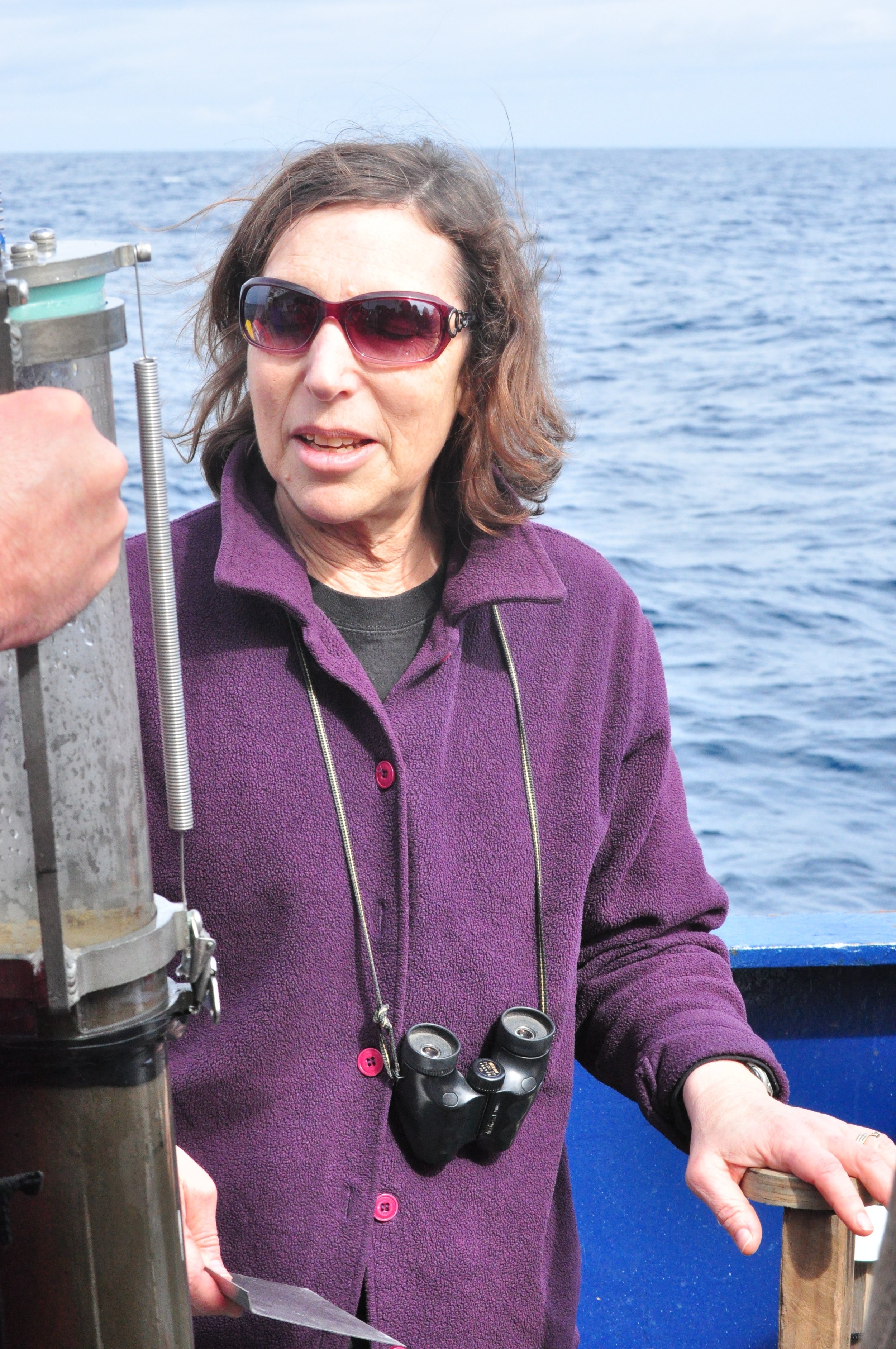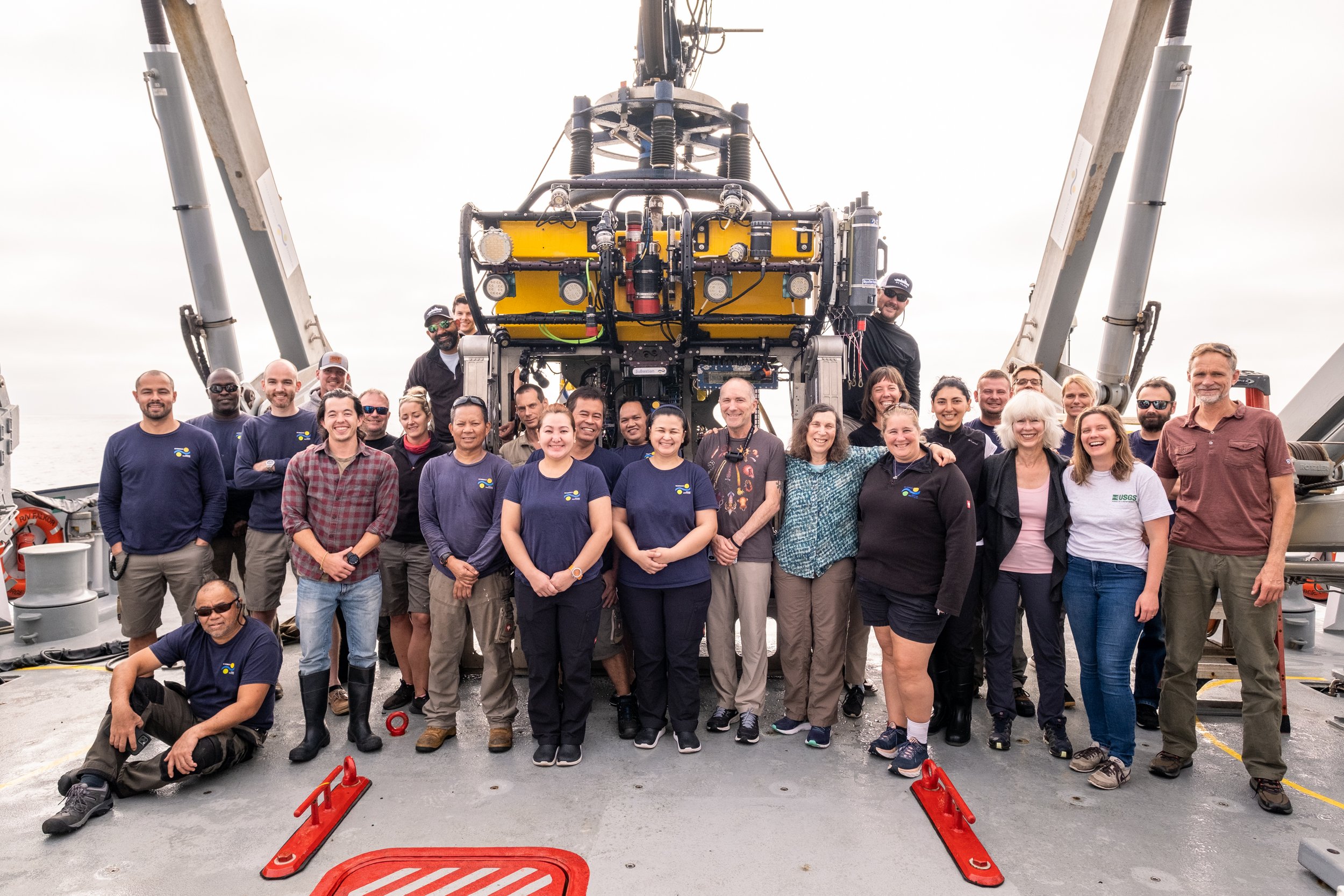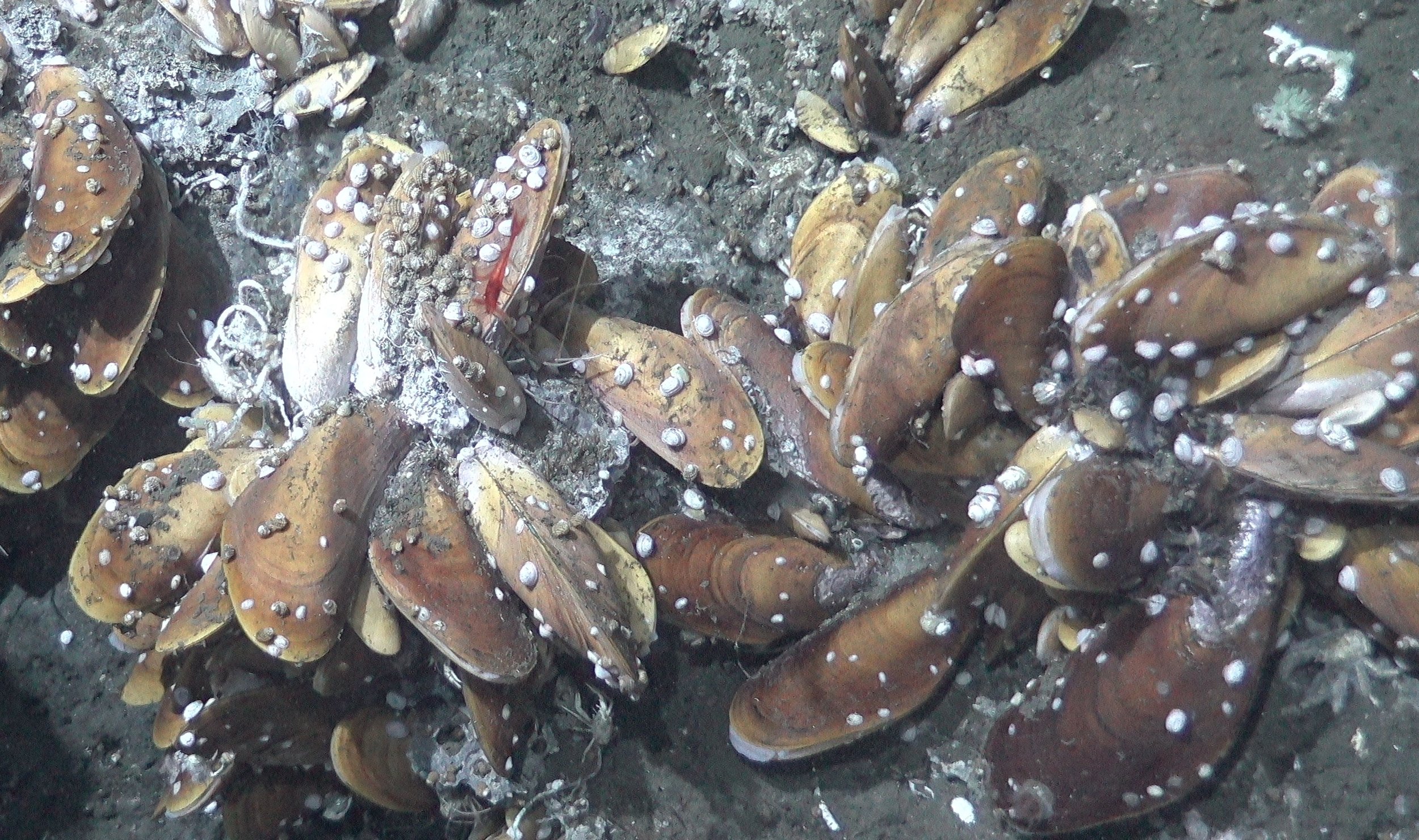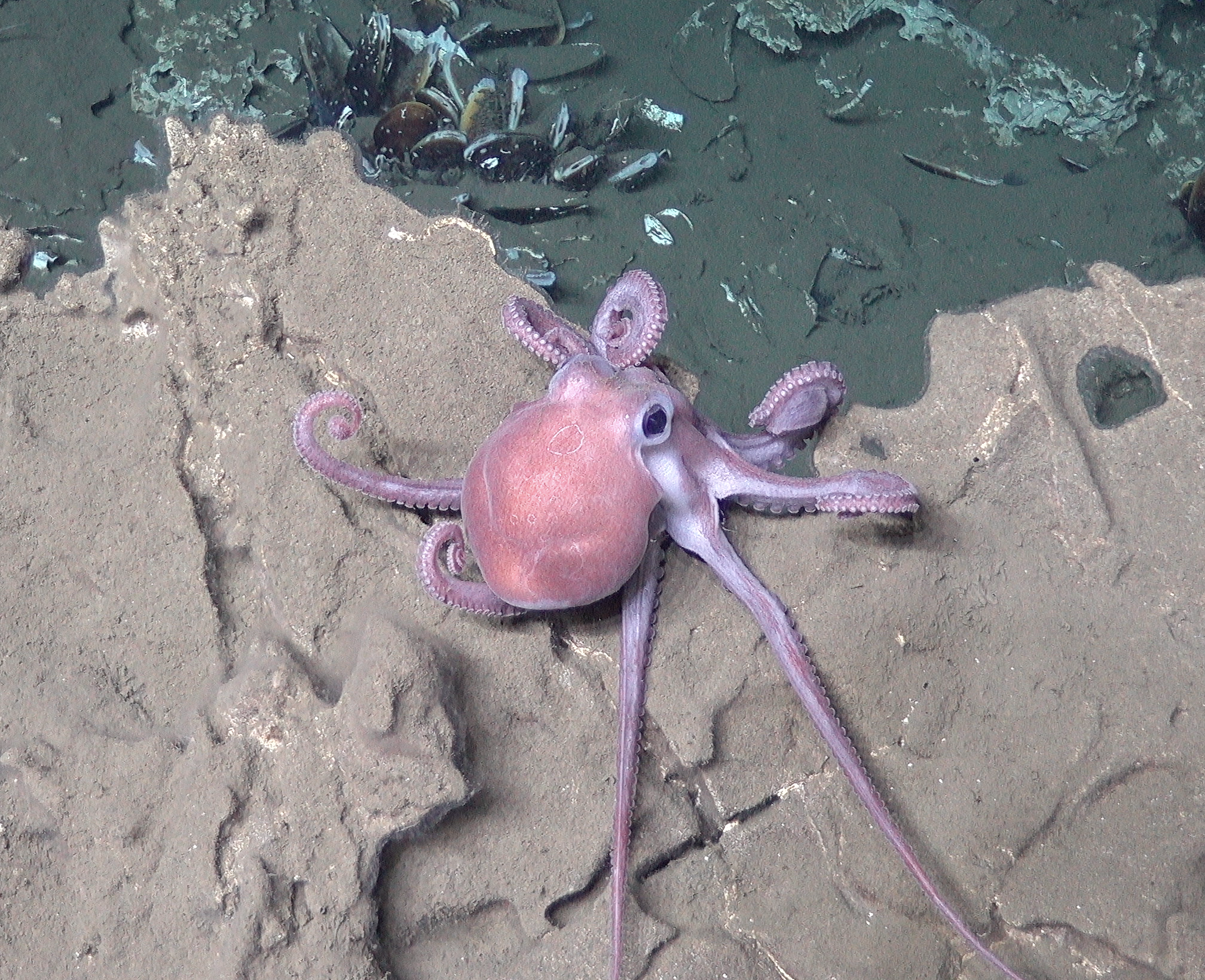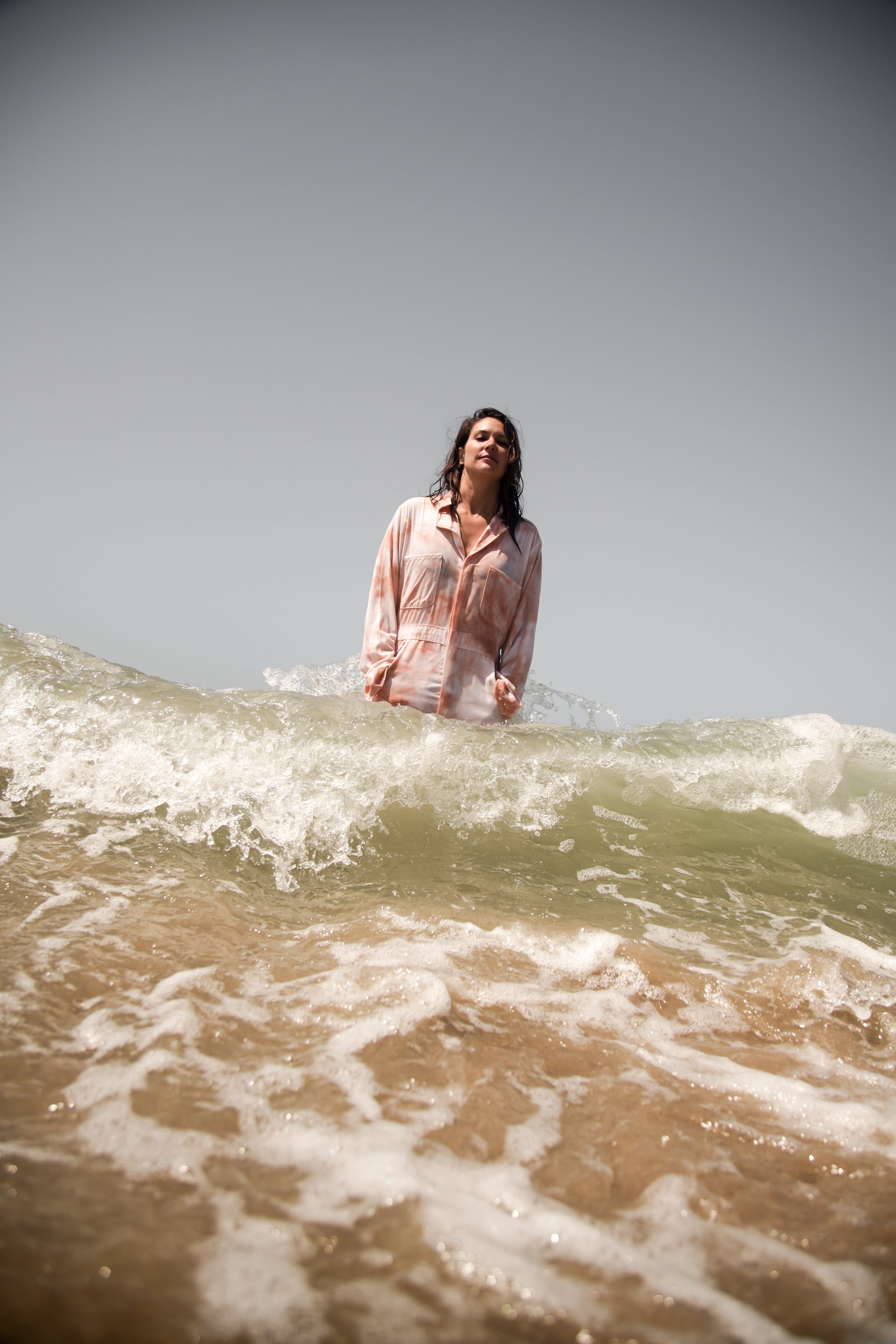
50/50
SHARING Science Through Narrative
PiPPA Ehrlich | Oscar Award Winning Director of My Octopus Teacher lisa levin | Distinguished Professor of biological oceanography and marine ecology
PIPPA My name is Pippa Ehrlich. I'm a filmmaker based in Cape Town, South Africa. Before I was a filmmaker, I was a marine science and conservation journalist for about four years, focusing mainly on sharks and rays. I'm interested in how we can use storytelling to not just inform people, but make a real impact in terms of how we live our lives and the kinds of choices that we make.
LISA I'm Lisa Levin. I'm a professor of biological oceanography at Scripps Institution of Oceanography at UC San Diego. I have studied many different aspects of the ocean over almost four decades. I spend most of my time on deep ocean research these days, trying to understand the vulnerability of the ocean to human impacts, from climate change to direct disturbance. I am increasingly interested in and recognizing the importance of conveying our science to the public and policymakers. That's why it's very exciting to talk to you because scientists are notoriously terrible at communicating with the public and making science tractable and understandable. I feel like there's a real need for us to work with artists and filmmakers and writers to make this happen.
PIPPAI think often what I found when I worked with scientists is they were quite nervous about the media and nervous about how their work might be portrayed. I've always been fascinated by how to describe this very important relationship between storytellers and scientists. Dr. Peter Kareiva put it in the best way I've ever heard it described. He said, “Science tells us what to do, but storytelling makes us want to do it.”
“I think often what I found when I worked with scientists is they were quite nervous about the media and nervous about how their work might be portrayed. I've always been fascinated by how to describe this very important relationship between storytellers and scientists. Dr. Peter Kareiva put it in the best way I've ever heard it described. He said, “Science tells us what to do, but storytelling makes us want to do it.”
— PIPPA
PIPPA I have this pile of National Geographic magazines from the eighties, the decade in which I was born. I read the front covers and I read the headlines and it talks about species going extinct and early discussions about climate change and what's happening in the Amazon. All those headlines are exactly the same as what you find on National Geographic today. It makes me feel so sad because I feel like my entire life has gone by and we've known about all this stuff, but we haven't made any of the changes that we needed to make. And we're now in trouble on planet Earth. If we don't change things drastically now at a very systemic level, this planet is not going to be livable for our species within a hundred years, let alone the millions of species that will disappear with us. Given that we've been aware of this reality for so long, or at least the scientific community has, what do you think has held us back from acting on it?
LISA The human race is pretty selfish. It doesn't look far into the future. Even when it knows what the future is going to look like, it doesn't act on it. The other big problem that I see is that we always pose tackling these changes in biodiversity or climate as something only the elite and wealthy can manage because everybody else is worried about feeding themselves, finding shelter, and surviving disease. This is what most of the people on the planet have to deal with. I think we've always conveyed that the challenges of climate change and biodiversity loss are separate from those other concerns. Separate from hunger, poverty, literacy, and so on. We must convey to people that if they want a habitable planet, they have to take care of the ocean.
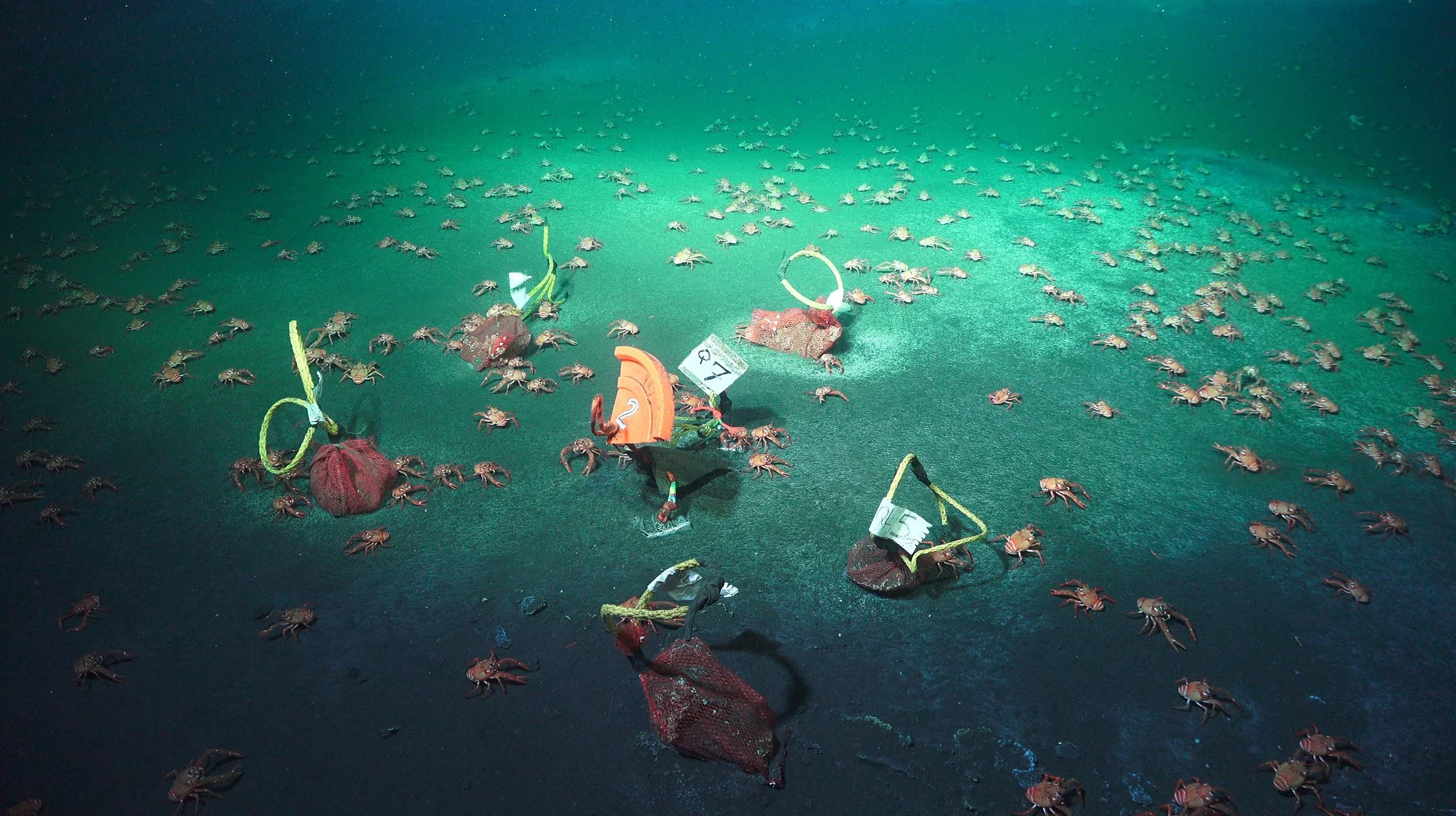
PIPPA In the time of accelerated climate change, people who are on the edge of survival now are going to be the first ones that are affected, and that's something that I find very unfair. All of the problems that often wealthier countries have created through a massive industrial complex have been externalized to people in less wealthy places who were struggling before.
LISA It's a major bone of contention at the climate negotiations and almost at any UN negotiation. The people who suffer are not the ones who created the problem, and who fixes this problem?
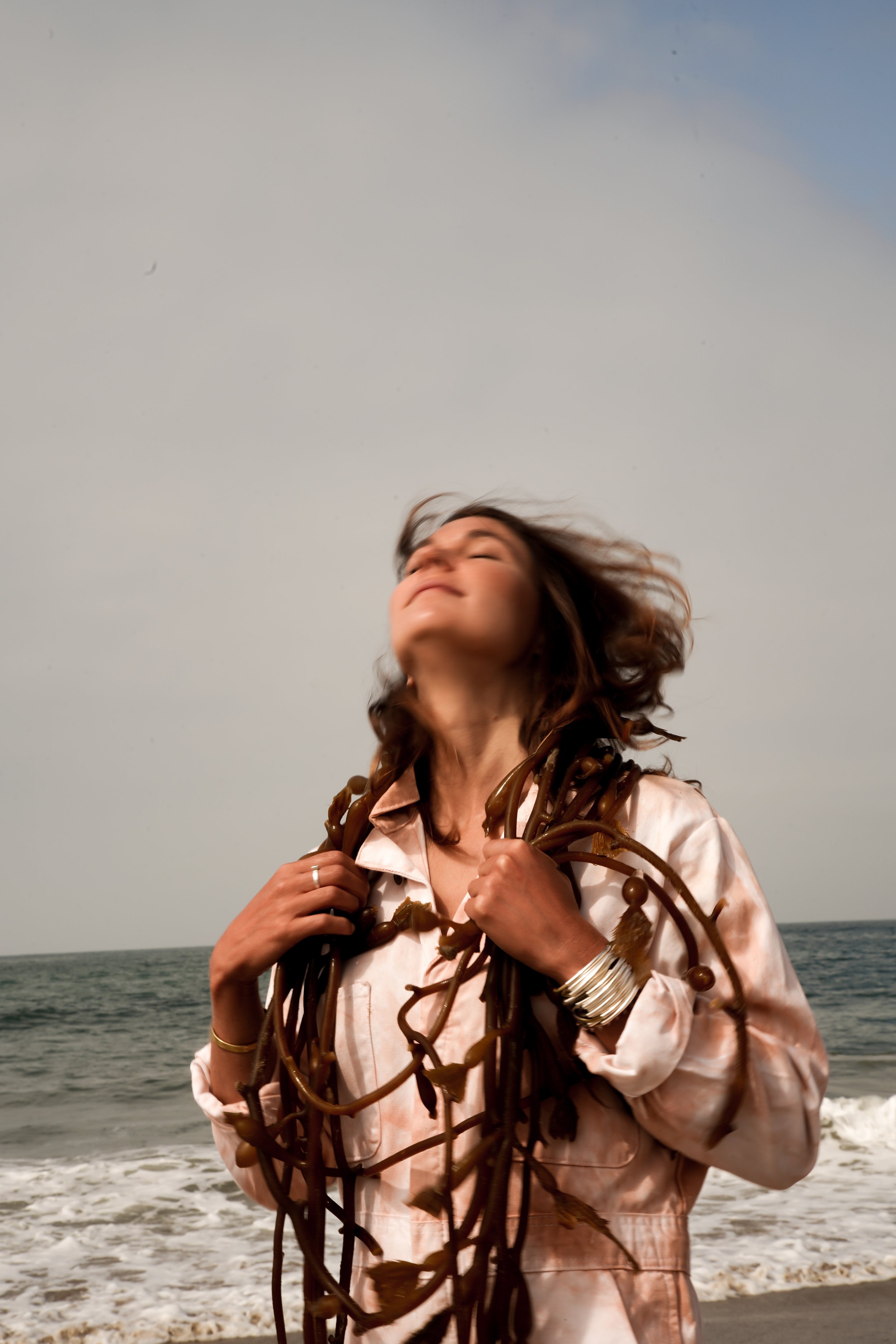
“I think it's kind of sad that so often environments only become relevant to human beings because there's something terrible happening to them. It would be a terrible tragedy if people only became aware of deep ocean ecosystems because of the horror and destruction wrought by deep ocean mining.”
- PIPPA
LISA How did you first become interested in the ocean in general?
PIPPA I grew up in Johannesburg, which is this very landlocked place in the middle of South Africa. But ever since I was a little kid, my parents would bring me to the beach once or twice a year. I think I just experienced this sense of happiness and calm when I was close to the ocean. I ended up in Cape Town and we had this incredible kelp forest on our doorstep. I got a job with the Save Our Seas Foundation, which is an organization that funds scientists. The amazing thing when you work for a funder is everybody wants to talk to you. So I had access to two, three hundred of the top shark and ray biologists in every corner of the planet. I asked them all the questions I'd ever imagined, and it became this unbelievable crash course in marine biology. The doorway was science and understanding the natural world through a scientific point of view, and then more of a naturalist way of thinking.
LISA I think, for many, it's easy to love the ocean if you experience it when you're young. I've been astounded that in some big cities that are on the ocean there are components of people that don't have transportation or don't have a reason who have never been to the ocean. How do we communicate with people who have never been to the ocean? Do you think it's important to do that and give them a way to love the ocean?
PIPPA I think it's absolutely critical. I maintain that there will never be a substitute for having a real-life experience of something, but I agree with you. I think we're incredibly privileged that we've been able to dedicate our lives to spending time in or on or close to the ocean. I like to speak about filmmaking as a kind of alchemy because you get to mould together sounds and visuals, and you're creating a multidimensional experience that evokes a lot of feeling. When we started My Octopus Teacher, I was speaking to a friend about it one evening and he looked at me and said, “If you can make this film in a way that people get a sense of the experiences that you're having when you're underwater every day, you would have done something really amazing.”
LISA I'm curious about whether you think people need to have a strong human connection to appreciate the ocean, to want to conserve or protect it? Or is it enough to look at beautiful images?
PIPPA I don't know if you always need a powerful human character, but then you need a very, very powerful animal character that humans can relate to. I think there are these universal themes that run through all of our lives as human beings. For example, wanting to protect your children, wanting to feel safe in the world, wanting to feel like you have room to go on an adventure. Even something like self-esteem is a critical human emotion. This is where you've got to be careful. Much of the criticism we've received was for anthropomorphism and pushing human relationships onto an octopus. But I think to say that animals don't have emotions is simply not true. They might not work in the same way as ours do, but they have very similar electrical signals flying around in their brain. To think that we can't assign the same level of intelligence to an octopus is very short-sighted.
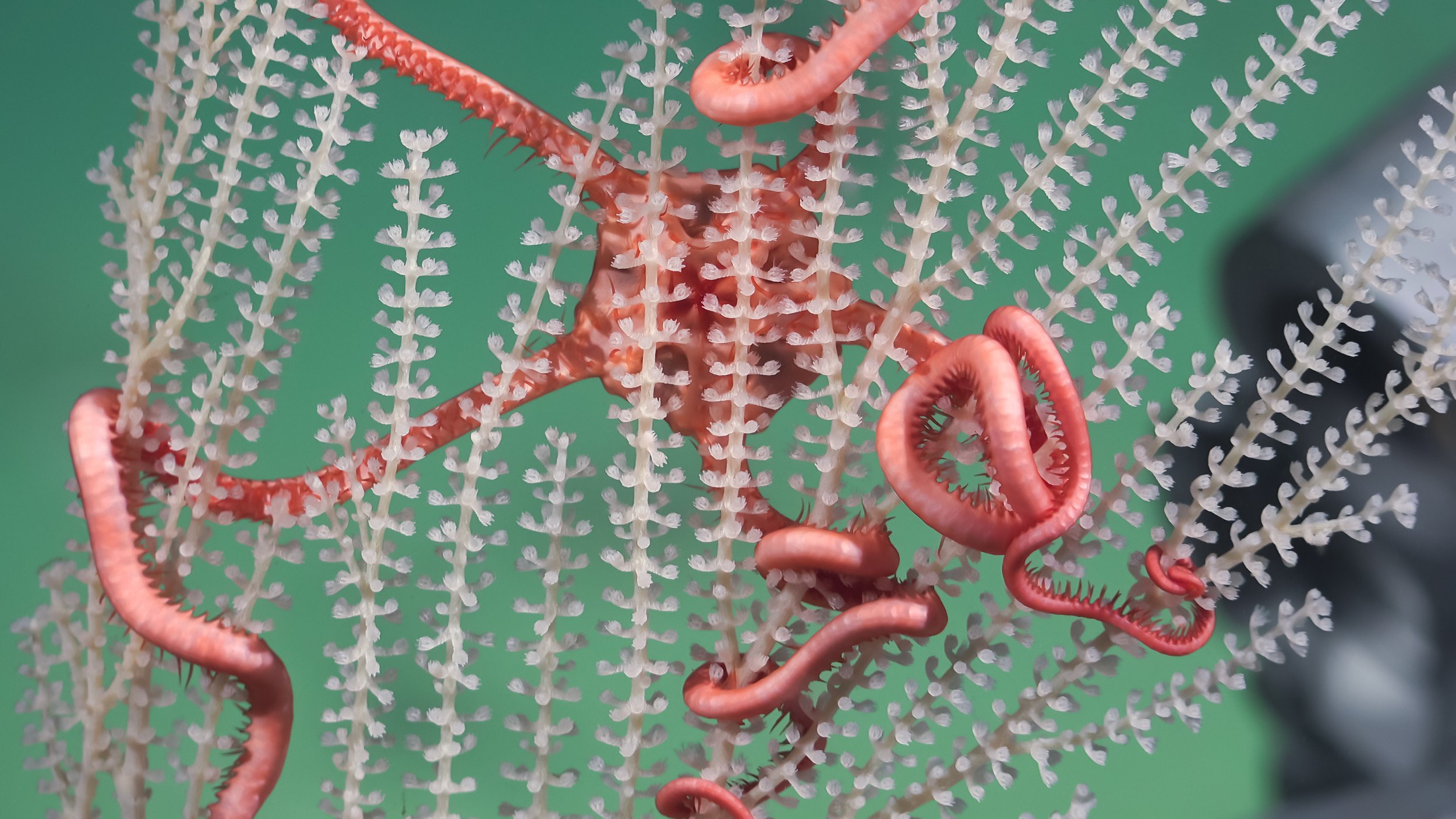
LISA I'm very interested in trying to raise awareness about the deep ocean. It is one of the most pristine settings, and I want to encourage people to think really carefully before going in and creating damage through resource extraction, or even climate change and emissions. I'm curious if you have ideas about how to do this. We couldn't easily follow an animal, like you did, in the deep continuously for a year or however long.
PIPPA The deep ocean is probably the biggest challenge. It's a world that we never see—the definition of a hidden world. I think that's where you need a powerful human voice to kind of guide you along in the story. I think people respond to love and excitement. If you can express what you feel when you see something that you've never seen before on one of those deep diving cameras, that's going to get people excited. Enthusiasm is infectious. Care is infectious. Love is infectious. And that's how we need to bring the natural world alive to people that have not had the experiences that we've had.
PIPPA How objective anyone can ever actually be is another question. The thing that's driving you is quite emotional in many ways. I think maybe there's something around putting all that objectivity and that hardcore scientific very important training into your papers, but then being a little bit freer, more creative, maybe less inhibited when it comes to speaking to the public. You can still be truthful.
LISA Scientists now know that for any of their science to be used in any way, they have to communicate it so more and more people are willing to speak. I also think we need people like you, who can help translate this. We tend to use a lot of jargon as scientists, and we tend not to know what people are most interested in. Things that fascinate us might be seen as pretty esoteric, and not necessarily the most interesting thing.
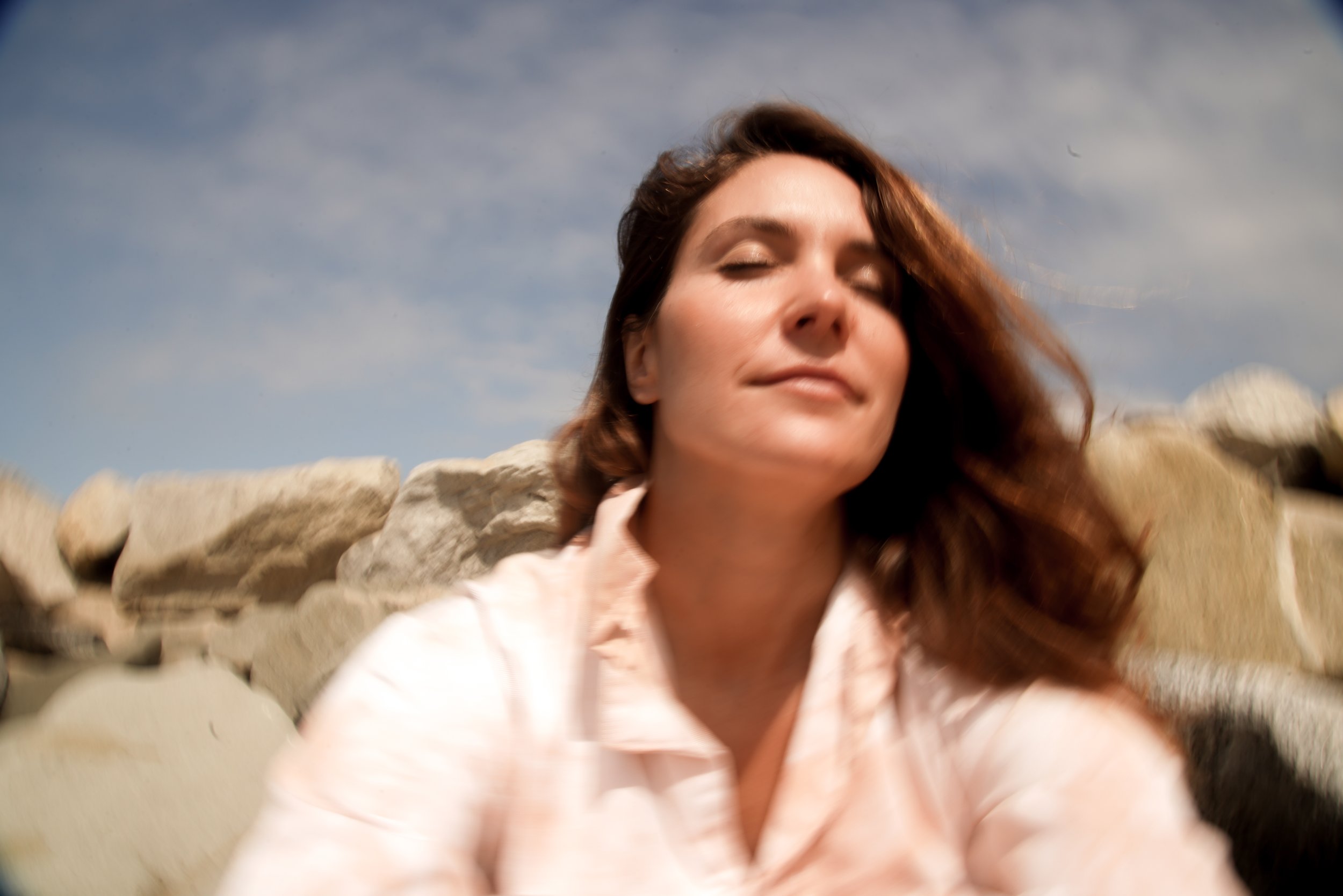
LISA I have another question for you because today is Indigenous Peoples Day. I've recently come to learn that some of the South African tribes or native peoples have a belief that their ancestors reside in the ocean and the older they are, the deeper they live. I've also come to learn that many other cultures value the ocean and the deep ocean in different ways. Is there a way to build the cultural belief system into the storytelling about the ocean a little bit more than we have in the past?
PIPPA We would have liked to do it more with My Octopus Teacher. Even being able to touch on indigenous wisdom with the Bushmen in the Kalahari the way that we did was a big victory for us, but we are going deeper and deeper into indigenous wisdom. Our connection to the ocean goes back as long as our species does and it's very, very powerful. I've actually been speaking to my colleagues recently about starting up a project that focuses on the indigenous wisdom side of the ocean in South Africa.
I think it's kind of sad that so often environments only become relevant to human beings because there's something terrible happening to them. It would be a tragedy if people only became aware of deep ocean ecosystems because of the horror and destruction wrought by deep ocean mining.
I guess the first thing to understand about science is that science is limited. The world is just so complicated. It's going to take forever for us to understand everything. And we probably never will.
LISA And that's definitely true for the deep sea. We will never describe all the species or know all the biodiversity that's there, but we do need to act if it's possible to create policies that conserve and protect areas, even when we don't know exactly what's there.
PIPPA The most powerful thing that the octopus does is dedicate the last months of her life to looking after eggs and oxygenating the eggs and starves to death during that process. So there's something in the evolutionary mind of an octopus. I think it's instinctive, but it causes those animals to prioritize future generations of octopuses. If we were going to do the same thing as human beings, where do you think the big priority areas are for ensuring that our planet continues to be livable for our children and grandchildren?
LISA Climate change has been politicized in a way that it absolutely should not be. I think creating the political will, and doing that by voting, is how we have to tackle this problem.
PIPPA It doesn't matter if you are black or white or man or woman or rich or poor. Every single human being on planet earth is in the same boat when it comes to the future of our home. If we can teach people how to grow food in small areas and make the most of each little bit of soil that we have, that's going to have an incredible impact on climate change in the long term.
